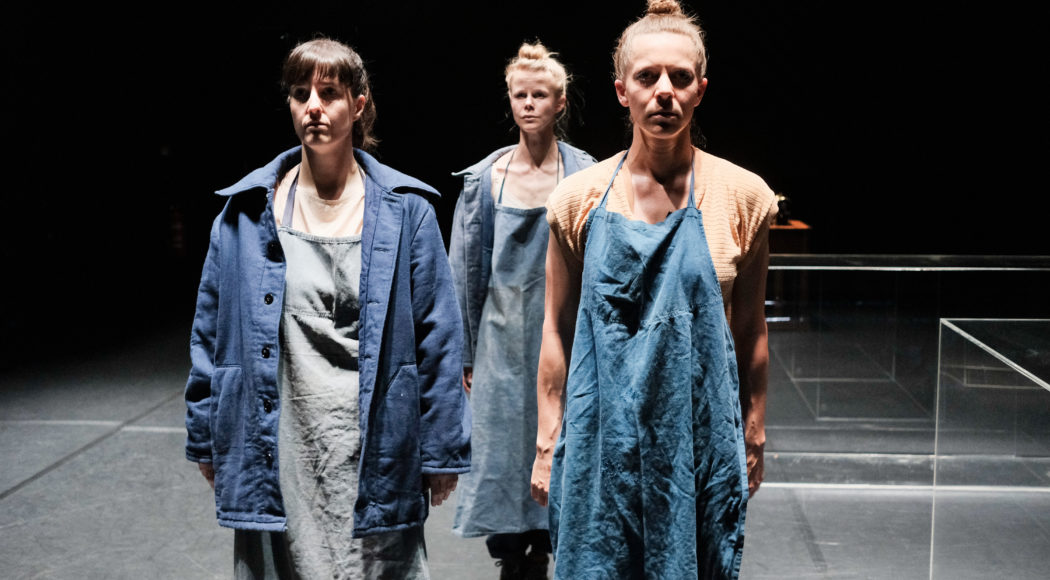Work! - Machines, energies, noises, materials, #2 – 2020
Leonie Kusterer, artistic adviser in HELLERAU, spoke with choreographer Irina Pauls about her new piece “shift change. SHIFT CHANGE.
Your choreographies “Labora” and “shift change. SCHICHTWECHSEL” deal with the movement field of serial work processes in the factories of industrialization. How did this group of works come about?
I am interested in anthropological aspects. As a choreographer I observe dancers in the working process. In this way I have learned to recognize the finest differences in their movements. And places inspire me to create artistic works. It was the same with the site of the Leipzig cotton spinning mill “Spinne”, the largest spinning mill in continental Europe at the beginning of the 20th century. Machines, energies, sounds, materials – it is the working conditions to which the body must submit. It is the work cycle that forces people into physical processes. It influences not only our bodies, but also our relationships with each other.
How did you transfer your research results to the choreographic level?
I have been working on the energy transfer in transmission machines. The resulting clocking of the working movements creates a continuous fine resonance in the body through their constant repetition. With this resonance on certain parts of the body, I have worked with dancers* down to the smallest physical ramifications. In addition, the timing creates an inner pulsation to which the body adjusts itself. Our body does not react mechanically. Can a movement be exactly repeated? Of course not. So it was interesting for us to see what happens to bodies that are forced into long repetitions and do not relate to their partner*.
As an artist, how do you think about working worlds in the future?
We should ask ourselves how we want to shape our human coexistence in the future. I’m concerned with what body knowledge we want to draw on in future technologies and to what extent this distances us from the product. We are still subject to the clock. The computer gives us the working rhythm. This work, too, will soon be a museum piece. Our understanding of the body will change in this process of mechanization. What consequences does this have for our living environments?
23.10. – 01.11.2020
Contemporary positions on the Year of Industrial Culture in Saxony
The theme festival ARBEIT! does not treat the concept of industrial culture as a retrospective, but rather builds a thematic bridge between industrialization and transformation processes up to today’s post-industrial society with its digital working and living world – with a special focus on Saxony and East Germany.


